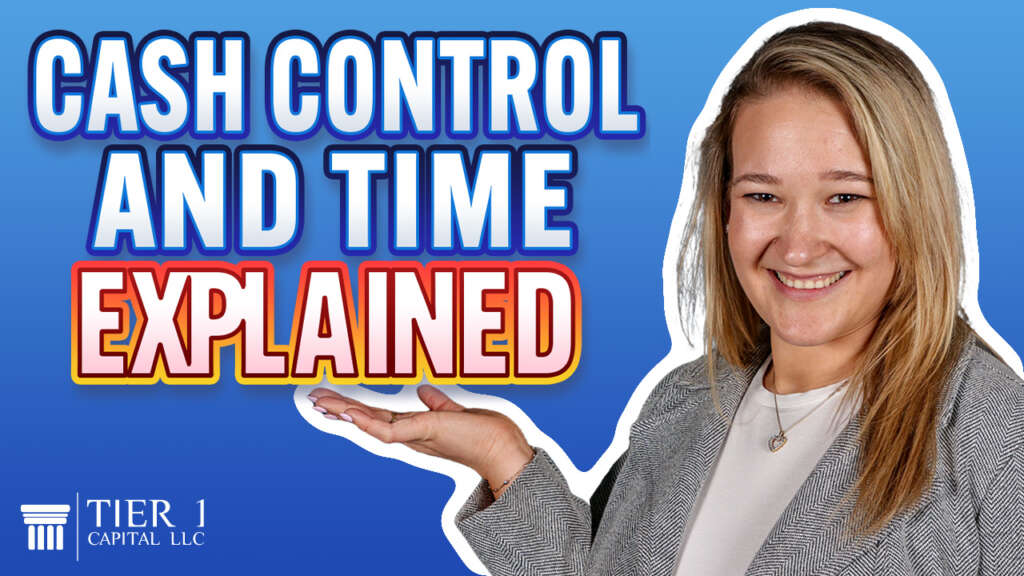
If you haven’t noticed, the world we live in is becoming more and more polarized. There are so many conflicting opinions out there. Are we about to go into a recession or not? And what about interest rates? Are they going to keep going up or are they going to decrease again?
Will there be continued volatility in the market or will stability return to the market? Not to mention the ultimate question, are taxes going up or down? How do we put ourselves in control of what we can control and start saving for the future, for a sure thing, regardless of what’s happening.
Because of the polarization, because of the uncertainty that comes with this polarization, one thing is certain. We still have goals. We still have milestones. And the longer we wait to address them, the more time we lose. And the fact of the matter is this the only thing we cannot afford to lose is time.
So the question remains, what moves should you be making right now to put yourself in a better financial position tomorrow? What are you going to look back and say, “Hey, I’m glad I made that financial decision. I’m glad I didn’t stay paralyzed and I’m glad I took that next step”.
The lens we look through is control. How do you remain in as much control as you can? Control of your assets, control of your cash flow, control of when you meet your goals. And when you’re in control, you’re better positioned to take advantage of anything that the economy, the government, and the world throws at you.
Again, putting yourself in a position where you could actually take advantage of all the bad news that’s out there. You could actually be in a position where you can look at that as an opportunity rather than being victimized by whatever happens outside.
You see, we believe there’s more opportunities in avoiding the losses than picking the winners. And not only that, but have you ever heard this, buy low and sell high? What better time to have full liquidity use and control of an asset than when the world is in economic turmoil? And by being prepared, you put yourself in a position where not only can you take advantage of opportunities, but you can protect yourself from whatever happens out there.
Here’s a question we ask all of our clients. Does having money that safe, liquid, and accessible when you want, no questions asked, does that take away any options in the future?
However, you have to keep in mind that the world around us is trying to gain more and more control of our cash flow. Whether it be paying off your mortgage as soon as possible, paying cash for your cars, or even saving in our retirement plan.
All of these things take your cash flow on a monthly basis and to put it out of our control. We’re transferring money from our control, our checkbook, every single month to outside creditors where we no longer have access to that money, especially without permission or a penalty.
So the answer, in our eyes, is very simple. When you view things through the lens of you being in control of your money, that makes your decisions so much easier. Because when you look and you analyze at the outcomes of each of these strategies and you see that you’re not in control of your money, don’t do it. Search, and find, areas or strategies that will continue to keep you in control of your money so that you can pivot in any direction that’s advantageous to you.
A perfect example of how someone isn’t looking at things through the lens of control is when they get hung up on interest rates. For example, when you go to the bank for a mortgage, what’s the first thing they offer? Hey, if you get a 15 year mortgage, you’ll have a lower interest rate than if you got this 30 year mortgage. But, what happens if you take that 15 year mortgage?
Well, you’re giving up a larger chunk of your monthly cash flow. And what’s the ripple effect of that? Well, if you’re putting more money toward your mortgage, you’re locking more money up in your home equity, but you’re also not able to save as much to reach your other financial goals.
You see, the money in your home equity isn’t necessary liquid, and it’s especially not liquid if you lose your job or become disabled, there’s no bank that’s going to give you a mortgage or access to that money If you don’t have a job.
So when you step back from that decision to take a 15 year mortgage because the interest rate is lower versus a 30 year mortgage, now you’re chewing up more of your cash flow. And the ripple effect is now you can’t save as much money, but more importantly, now you have less accessible money. So, if an emergency comes around or an opportunity comes around, you can’t solve the problem created by the emergency or take advantage of the opportunity that came to you. So the key is having accessible money that positions you to take advantage of all of these situations.
Let’s face it, life always happens. And when life throws a curveball at you, don’t you want to be able to hit that ball out of the park instead of being hit in the face? I for one, I have to tell you, I hate getting hit in the face. It’s not pretty.
If you’re ready to hit that curve ball out of the park, be sure to visit our website at Tier1Capital.com. Check out our free webinar for exactly how we put this process to work for our clients.
As we always say, it’s not how much money you make. It’s how much money you keep that really matters.



